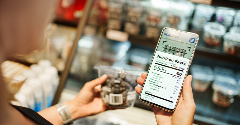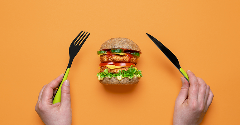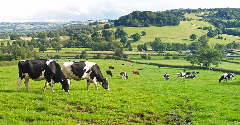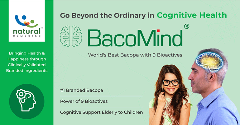News
Sowing the Seeds of Change in Bread
11 Nov 2014Bread has an image problem. Across Europe, a significant proportion of consumers (as high as 48% in the UK and Italy) state that bread is not an option for those trying to lose weight and even more (54% in Italy and 48% in the UK and Spain) believe sliced bread contains too many artificial preservatives. […]

Bread has an image problem. Across Europe, a significant proportion of consumers (as high as 48% in the UK and Italy) state that bread is not an option for those trying to lose weight and even more (54% in Italy and 48% in the UK and Spain) believe sliced bread contains too many artificial preservatives. Boosting the health appeal of bread to drive increased consumption is therefore a priority.
In such an environment, positioning bread as healthier and more natural through the use of nutrient-boosting ingredients such as seeds, ancient grains and fruits is an increasingly popular tactic. Indeed, in 2014 bread made with seeds has accounted for one in five of all launches globally, having consistently grown in recent years. Such development meets the consumer interest in added health attributes: 35% of Germans rate fibre as an important factor when buying bread, for example, while 33% of UK consumers are interested in trying baked goods that contain more fibre.
Germany, the US, Canada and the UK are the markets where most seeded bread innovation has taken place. Germany especially has traditionally been a market where bread with seeds has done well: in 2013, 77% of German bread consumers were eating multigrain bread, including bread with different seed toppings, whilst in the UK 40% were eating granary/multigrain bread, including seeded varieties.
With the number of bread products containing seeds growing, the variety of seeds being used is widening. Sesame seeds, linseeds (flaxseeds) and sunflower seeds account for the majority of seeds used; however, other seed types are also coming into play. Poppy, psyllium, cumin and especially chia seeds have seen significant growth in usage in recent years.
Poppy and cumin seeds are a good source of minerals such as calcium, phosphorus, manganese and iron as well as vitamin B. Psyllium seed husk is fibre-rich and is thus often promoted for weight control and for general intestinal health. Chia seeds, meanwhile, have an excellent nutritional profile, containing numerous minerals and omega-3 fatty acids, as well as being high in fibre and protein.
The launches of bread containing chia seeds in recent years have been concentrated in the Americas and Australasia. Given that Latin America and Australia are where the seed is commercially grown and the US has a familiarity with the seed already, this is perhaps unsurprising. However, their continuing lack of usage in Europe is surprising, given that the UK and Germany are two key markets for seeded bread innovation. Chia seeds were approved in 2009 as a novel food in the EU for use in bread products.
So far, in the UK at least, a launch under the Burgen brand of a sunflower and chia seed bread in 2012 remains the most high profile. However, chia seeds are starting to be seen in a wider range of products, including breakfast cereals and snacks following European approval in 2013 for their use in these products under an application by Australia’s The Chia Company. With other applications for such approval having also been granted in 2014, the market could soon be exposed to more chia-containing foodstuffs which should provide greater incentive to use them in bread as well.
Related news

Has ‘clean’ had its day?
22 Dec 2025
Wielding clean-label positioning and fortification as marketing levers is a dangerous strategy, and brands would be better off explaining the hows and whys of the ingredients in their products, say experts.
Read more
Celebrating the winners of the Fi Europe Innovation Awards 2025
3 Dec 2025
Food industry stakeholders celebrated as the winners of the Fi Europe Innovation Awards were announced at a ceremony in Paris.
Read more
Alternative protein startups pivot to B2B ingredients amid funding shift
27 Nov 2025
Alt protein startups are pivoting from consumer meat analogues to high-value B2B ingredients, driven by stronger investor interest, better margins, and clearer commercial pathways.
Read more
Walmart Marketplace’s record growth prompts search for UK sellers
26 Sep 2025
Walmart’s third-party e-commerce platform, Marketplace, has witnessed extraordinary growth – but a need for more product diversity has prompted the retailer to recruit UK sellers.
Read more
The winners of Vitafoods Europe Startup Challenge 2025 revealed
29 May 2025
Four startups – Yomio Drops, PFx Biotech, Revobiom, and Favamole – took top prizes at this year’s Vitafoods Europe Startup Challenge awards.
Read more
East takes on West in the fight for future food flavours
30 Apr 2025
Asian and South American flavours are now key components on global menus, driven by a growing global appetite for culinary mashups.
Read more
Food companies urged to bring ‘joy’ and urgency to healthy food mission
14 Mar 2025
For too long, businesses have treated health and sustainability as separate agendas – but there is growing evidence to show diets that benefit human health can also enhance that of the planet, say experts.
Read more
Entries open for inaugural Vitafoods Europe Innovation Awards
29 Jan 2025
Entries are open for the inaugural Vitafoods Europe Innovation Awards, celebrating the ingredients, finished products, partnerships, and initiatives redefining the nutraceutical landscape.
Read more
Paris Olympics: Food and beverage brands champion health, fun, and sustainability
5 Aug 2024
Food and beverage brands are aligning with the Paris Olympics 2024 Food Vision, which emphasises sustainability, local sourcing, and plant-based diets.
Read more
Natural Remedies: Bringing health and happiness via validated branded ingredients
18 Apr 2024
Natural Remedies is an internationally renowned botanical healthcare company committed to advancing the field through rigorous research and the development of clinically validated Branded Ingredients. Guided by our foundational principle of ‘BEING USEF...
Read more